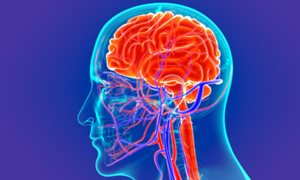11 January 2019
No significant differences between the intervention and control groups were found for executive functioning, episodic memory and working memory.
In this study the authors also demonstrated that exergaming is a feasible and positively rated exercise method for people with dementia, resulting in higher training adherence in the exergame group compared to the aerobic group (87.3 versus 81.1%). Accordingly, exergaming seems to be an effective method to engage people with dementia in physical exercise.
 In Alzheimers Research & Therapy Esther Karssemeijer and Roy Kessels from the departments of Geriatrics and Medical Psychology showed that a 12-week exergame and aerobic training improve psychomotor speed in people with dementia.
In Alzheimers Research & Therapy Esther Karssemeijer and Roy Kessels from the departments of Geriatrics and Medical Psychology showed that a 12-week exergame and aerobic training improve psychomotor speed in people with dementia.
No significant differences between the intervention and control groups were found for executive functioning, episodic memory and working memory.
In this study the authors also demonstrated that exergaming is a feasible and positively rated exercise method for people with dementia, resulting in higher training adherence in the exergame group compared to the aerobic group (87.3 versus 81.1%). Accordingly, exergaming seems to be an effective method to engage people with dementia in physical exercise.
Related news items

Milk fat to attenuate obesity-related neurological co-morbidities
18 November 2021 The use of lipids to attenuate co-morbidities of obesity may sound paradoxical. However, it has shown to be particularly relevant in the fight against a less familiar co-morbidity of obesity, as it can induce alterations in white matter tracks, neuroinflammation and increases the risk of dementia. go to page
Early stage biomarker for Alzheimer's disease
4 November 2021 Researchers from the translational metabolic lab and department of neurology, in collaboration with researchers from University of Barcelona, set out to research a new biomarker in cerebrospinal fluid called “neuroleukin” for Alzheimer's disease. go to page
A robot for health data acquisition among older adults
1 April 2019In BMJ Quality & Safety Roel Boumans and colleagues from the department of Geriatrics showed that social robots may effectively and acceptably assist healthcare professionals by interviewing older adults on their perceived health status.
go to page
New technology helps physicians to look at the patient as a whole
1 November 2018 Research from Wageningen University & Research and Radboudumc have found a way to assess the resilience of animals and humans based on data from wearable electronics. go to page

